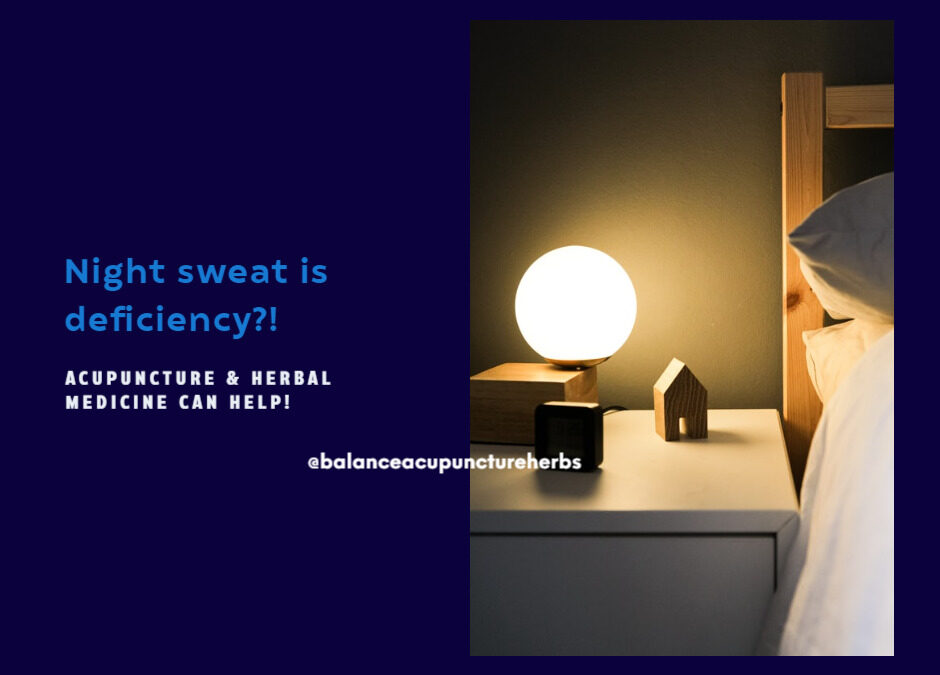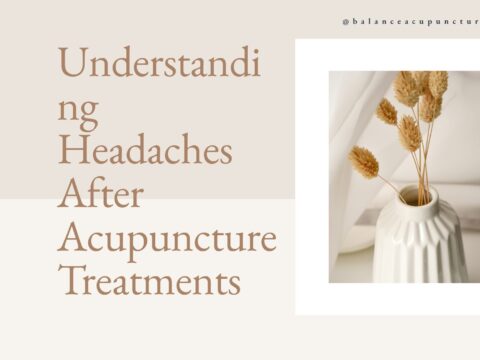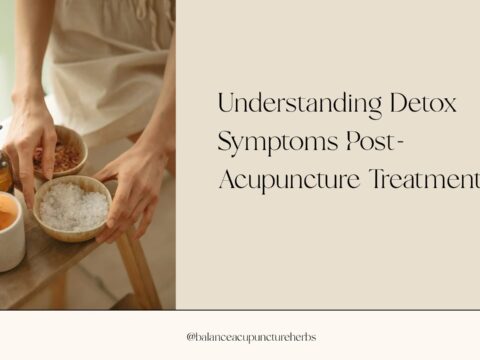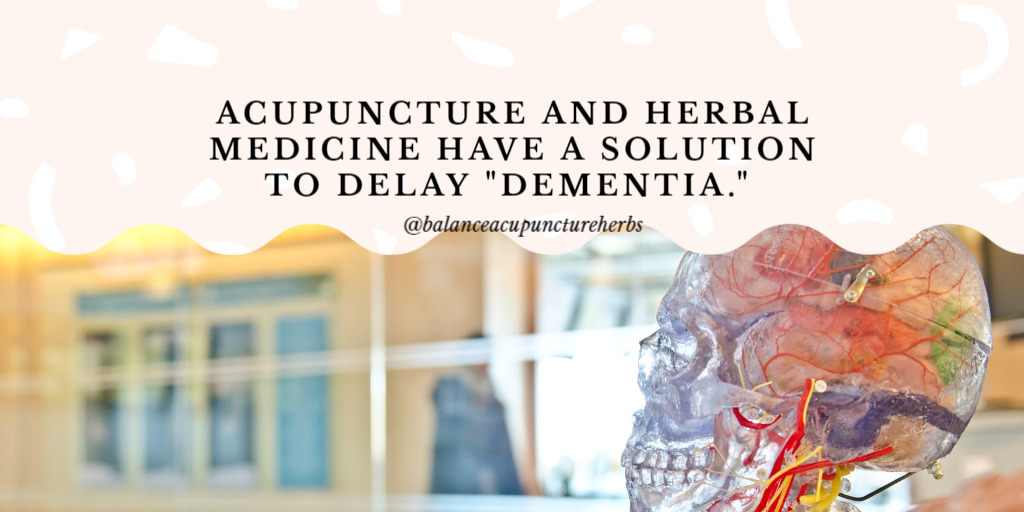
Acupuncture and Herbal Medicine Have a Solution to Delay “Dementia.”
June 10, 2022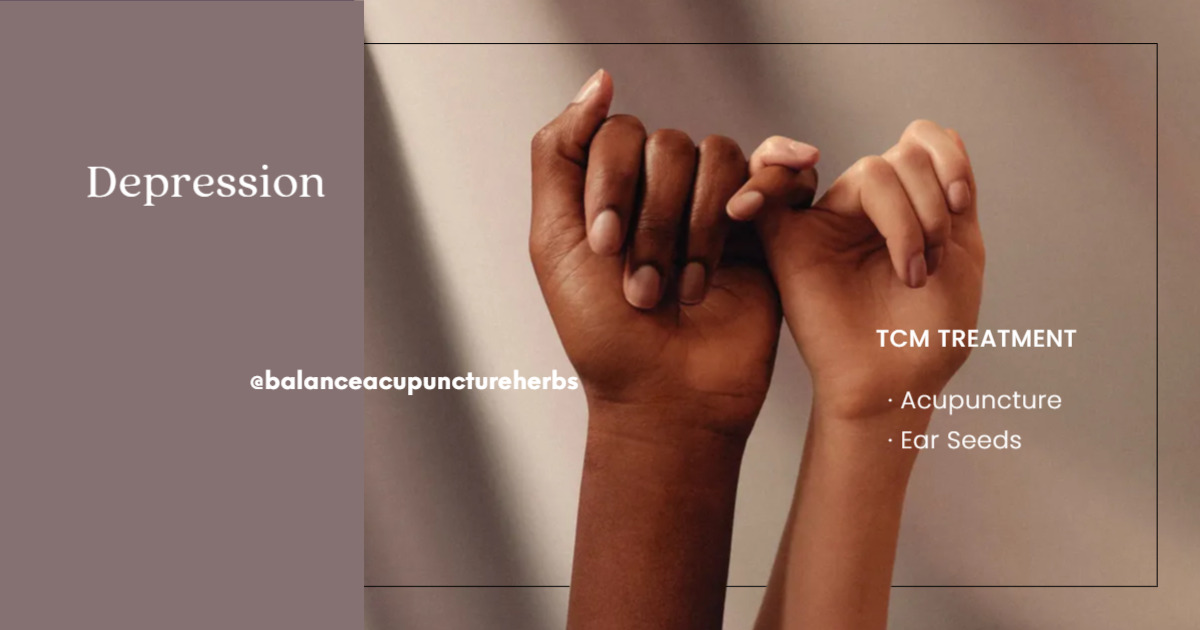
[Depression ] Acupuncture for Depression
July 7, 2022|
Getting your Trinity Audio player ready...
|
Night sweats is deficiency?! How does TCM support?
What is night sweats?
Night sweats refer to the symptoms of sweating on the head, face, chest, neck, limbs, and whole-body during sleep without being affected by the external environment. The sweating stops after waking up. Equivalent to hyperthyroidism, autonomic dysfunction, rheumatic fever, tuberculosis, and other abnormal night sweating. Night sweats are common in people with insufficient rest, physical exhaustion, staying up late with tobacco and alcohol, and high mental stress. Since night sweats will further damage yin, jin, and yang, resulting in malignant loss, it cannot be ignored, and it is advisable to seek medical treatment as soon as possible to find the source of the disease.
View of TCM
Night sweats are generally caused by yin deficiency and blood deficiency, but there are also yang deficiency and blood stasis. So if the patient suffers from night sweats for a long time, it will deplete the heart yin, resulting in problems with the “heart.” But, of course, the malfunction of the “heart” can also lead to abnormal sweating.
Treatment
When treating night sweats, traditional Chinese medicine emphasizes distinguishing the deficiency and excess of yin and yang of the disease syndrome. And the deficiency syndrome is treated by nourishing qi, nourishing yin, and harmonizing yin and yang. Traditional Chinese medicine treats both the symptoms and the root. In addition, traditional Chinese medicine focuses more on whether there is a primary disease (such as gall disease), and night sweats are often alleviated when the primary disease is properly treated.
Night sweats level
Mild night sweats: Usually occur in a deep sleep, or around 5:00 in the morning, or 1 to 2 hours before waking up, the patient will have a small amount of sweat, but no sweating after waking up.
Moderate night sweats usually occur shortly after falling asleep, followed by sweating all over the body. Finally, the patient will feel dry mouth and throat, and after wiping off the sweat from his body, he will sleep without sweating again.
Severe night sweats usually occur shortly after falling asleep or when the patient is about to fall asleep. The patient sweats profusely throughout the body. Although the sweating can gradually stop after waking up, the body will still sweat profusely when falling asleep again, which seriously affects sleep. Such patients will also have irritability, dry mouth, weight loss, fatigue, and dry stool.
There is another type of night sweats!
When there is profuse sweating at night, accompanied by chest pain, chest tightness, a feeling of pressure, pale complexion, cold limbs, faint pulse, and even syncope in severe cases, at this point should be highly suspected of myocardial infarction! Myocardial infarction is usually caused by narrowing the coronary arteries, insufficient blood supply, myocardial ischemia, and the release of painful substances.
Once the above symptoms appear, you must go to the cardiologist to make a precise diagnosis of coronary stenosis.
Daily nursing
(1) Appropriate exercise.
(2)Void spicy hot food, prohibit alcohol, and eat more fresh vegetables that nourish yin and clear heat.
(3) the temperature and humidity need to be adjusted appropriately.
(4) Wipe the sweat with a dry towel after night sweats. If you sweat a lot, you should change your underwear frequently and keep your clothes and bedding dry and clean.
(5) For patients with severe night sweats and long-term bedridden conditions, family members should emphasize strengthening nursing care to avoid bedsores. Also, observe the patient’s complexion, consciousness, and the amount of sweating, and report any particular changes to the practitioner in time.
Reference:
de Valois, Beverley A et al. “Using traditional acupuncture for breast cancer-related hot flashes and night sweats.” Journal of alternative and complementary medicine (New York, N.Y.) vol. 16,10 (2010): 1047-57. doi:10.1089/acm.2009.0472
Ramasamy, Visweswaran. “Acupuncture for the Treatment of Paraneoplastic Night Sweats.” Journal of acupuncture and meridian studies vol. 11,4 (2018): 159-161. doi:10.1016/j.jams.2018.03.001
de Valois, Beverley et al. “Acupuncture in the real world: evaluating a 15-year NADA auricular acupuncture service for breast cancer survivors experiencing hot flushes and night sweats as a consequence of adjuvant hormonal therapies.” Supportive care in cancer : official journal of the Multinational Association of Supportive Care in Cancer vol. 30,6 (2022): 5063-5074. doi:10.1007/s00520-022-06898-7
Health information -by Mayo Clinic

